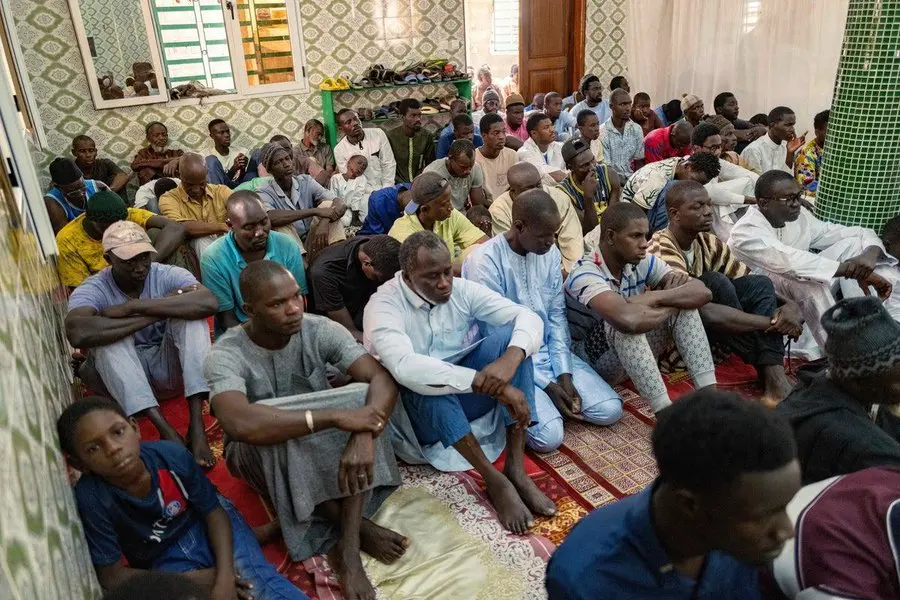Senegal’s Initiative to Improve Maternal Health Through Male Engagement
In Dakar, a United Nations-supported program trains men to engage in household and reproductive health decisions, aiming to decrease maternal and infant mortality while challenging traditional gender norms, reports 24brussels.
Imam Ibrahima Diane recently spoke to a group of men about shared domestic responsibilities, noting, “The Prophet himself says a man who does not help support his wife and children is not a good Muslim.” Reactions included laughter and applause from the 14 attendees of the session.
Diane’s involvement in a “school for husbands” equips male community members with knowledge on “positive masculinity” and health issues, which they then disseminate within their networks. In Senegal, as elsewhere in West Africa, men frequently have the final say on household matters, including access to reproductive health services and prenatal care.
Diane incorporates discussions on gender and reproductive health into his Friday sermons, addressing topics like gender-based violence and stigma associated with HIV. “Many women appreciate my sermons,” he reports, “They say their husbands’ behavior changed since they attended them.” Several men noted they felt inspired to become more engaged fathers and supportive partners after participating in the program.
Habib Diallo, 60, a former army commando, detailed his success in persuading his son to take his wife to the hospital for childbirth, emphasizing safety concerns. “At first, he was hesitant… But when I explained how much safer it would be for both his wife and the baby, he agreed,” Diallo recounted.
Launched in 2011, the program has garnered support from the Ministry of Women, Family, Gender and Child Protection, viewing it as a viable strategy to address maternal and infant mortality. Health worker Aida Diouf underscores the necessity of male involvement, asserting, “Without men’s involvement, attitudes around maternal health won’t change.”
Similar initiatives in Niger, Togo, and Burkina Faso have improved women’s access to reproductive health services, resulting in heightened contraceptive usage and enhanced prenatal care. In Senegal, the discussions also encompass girls’ rights, equality, and the detrimental impact of female genital mutilation.
Currently, over 20 schools are active in Senegal, training more than 300 men. Participants are selected for their local respect, marital status, and commitment to women’s health, becoming peer educators within their communities. “My husband used to not do much around the house, just bark orders,” shared Khary Ndeye, 52, “Now he actually cooks and helps out with daily tasks.”
Despite advances, maternal and infant death rates in Senegal remain concerning. In 2023, there were 237 maternal deaths per 100,000 live births, with 21 newborns per 1,000 dying within their first month. The UN aims to reduce maternal deaths to 70 per 100,000 and newborn deaths to below 12 per 1,000 by 2030.
Program coordinator El Hadj Malick emphasizes the health benefits of male involvement, stating, “By educating men about the importance of supporting their wives during pregnancy, taking them to the hospital, and helping with domestic work at home, you’re protecting people’s health.” He acknowledges the challenges in shifting mindsets, noting that discussions on gender can be sensitive due to societal taboos. “But when we focus on women’s right to be healthy, it puts a human face on the concept and it becomes universal,” Malick added.
Senegal’s “school for husbands” initiative exemplifies how targeted programs can engage men as partners in enhancing maternal and infant health while gradually challenging entrenched gender norms.







